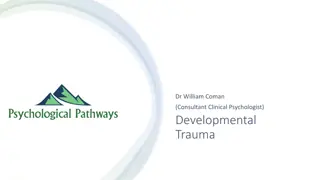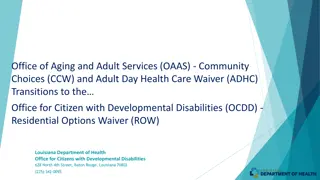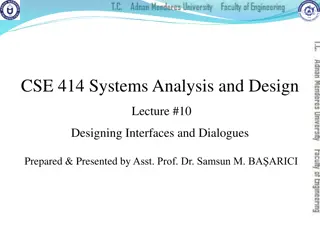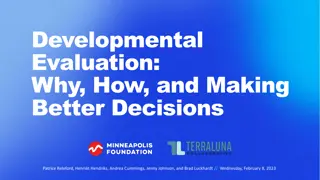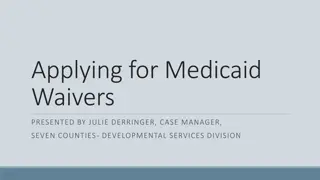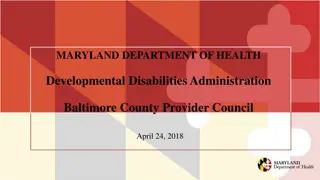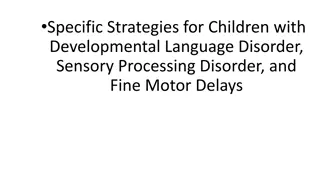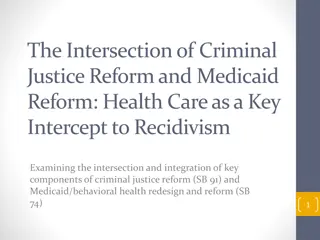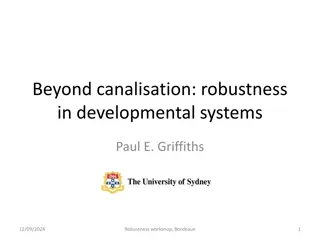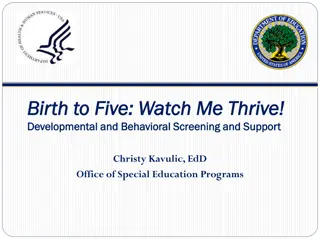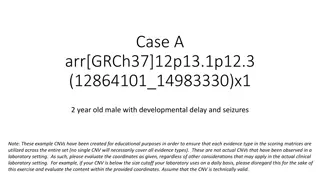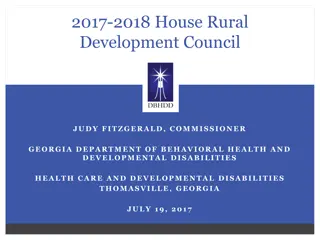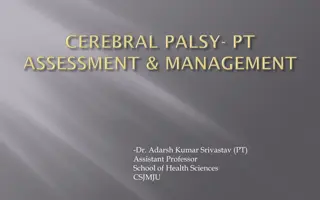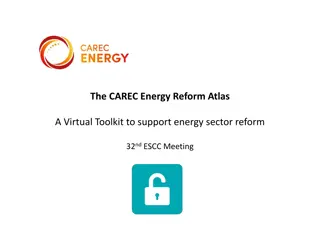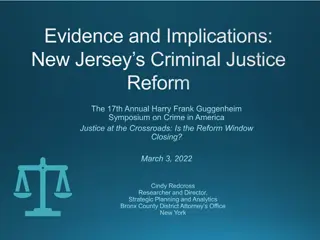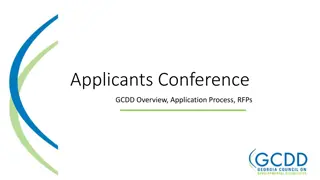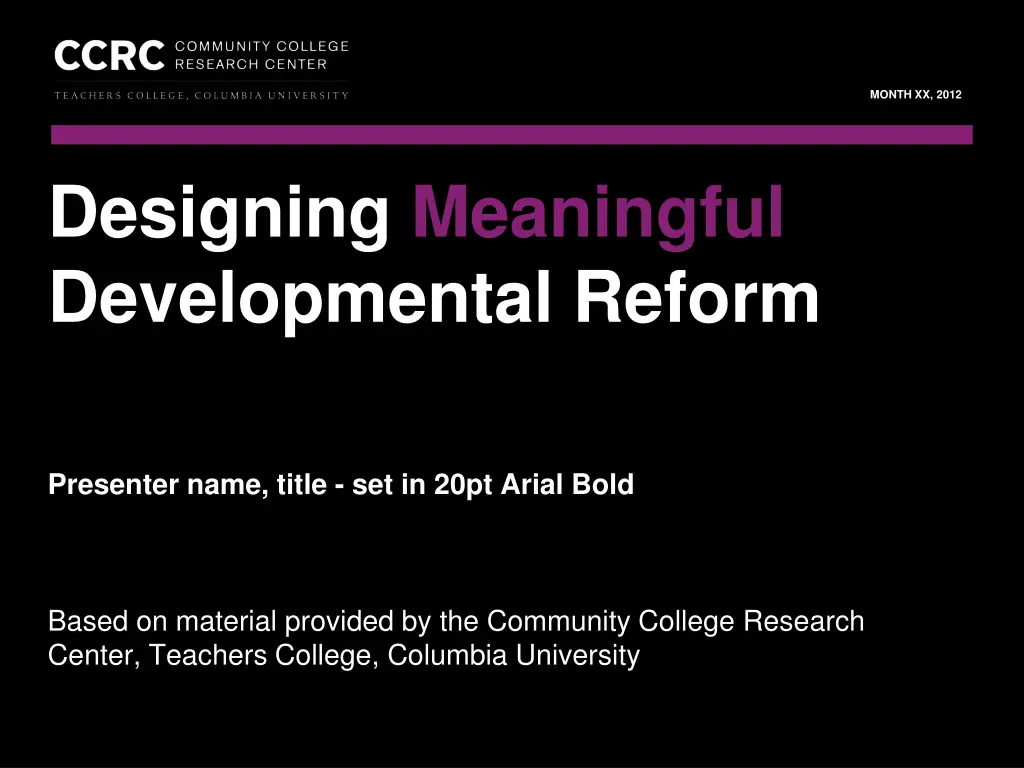
Meaningful Developmental Reform: Finding Balance Between Autonomy and Consistency
Explore the challenges in community college reform, focusing on the delicate balance between institutional autonomy and system-wide consistency. Delve into the debate on efficient versus effective assessment methods and the impact on students' placement. Join the discussion on designing equitable and clear policies for student success.
Download Presentation

Please find below an Image/Link to download the presentation.
The content on the website is provided AS IS for your information and personal use only. It may not be sold, licensed, or shared on other websites without obtaining consent from the author. If you encounter any issues during the download, it is possible that the publisher has removed the file from their server.
You are allowed to download the files provided on this website for personal or commercial use, subject to the condition that they are used lawfully. All files are the property of their respective owners.
The content on the website is provided AS IS for your information and personal use only. It may not be sold, licensed, or shared on other websites without obtaining consent from the author.
E N D
Presentation Transcript
COMMUNITY COLLEGE RESEARCH CENTER PRESENTATION TITLE IN HEADER / MONTH XX, 2012 MONTH XX, 2012 Designing Meaningful Developmental Reform Presenter name, title - set in 20pt Arial Bold Based on material provided by the Community College Research Center, Teachers College, Columbia University 1
COMMUNITY COLLEGE RESEARCH CENTER COMMUNITY COLLEGE RESEARCH CENTER PRESENTATION TITLE IN HEADER / MONTH XX, 2012 PRESENTATION TITLE IN HEADER / MONTH XX, 2012 Tension One: Institutional Autonomy vs. System-wide Consistency 2
COMMUNITY COLLEGE RESEARCH CENTER PRESENTATION TITLE IN HEADER / MONTH XX, 2012 Autonomy Vs. Consistency THE CASE FOR SYSTEM-WIDE CONSISTENCY THE CASE FOR AUTONOMY Reduces inequity and confusion for students. Communicates consistent, clear college-ready standards to students and high schools Common standards make it easy to track student performance across colleges & smooth the process of transfer between colleges. No clear evidence on what developmental policy is most effective. Colleges have flexibility to implement policies that they believe best serve their students. Given absence of evidence on what the optimal policy is, system-wide consistency may guarantee little more than uniform implementation of ineffective policy. 3
COMMUNITY COLLEGE RESEARCH CENTER COMMUNITY COLLEGE RESEARCH CENTER PRESENTATION TITLE IN HEADER / MONTH XX, 2012 PRESENTATION TITLE IN HEADER / MONTH XX, 2012 Tension Two: Efficient vs. Effective Assessment 4
COMMUNITY COLLEGE RESEARCH CENTER PRESENTATION TITLE IN HEADER / MONTH XX, 2012 Efficient vs. Effective THE CASE FOR EFFICIENT ASSESSMENT THE CASE FOR EFFECTIVE ASSESSMENT CCs must evaluate thousands of incoming students every year. Computer adaptive placement tests can do this quickly and cheaply. Tests can be administered quickly, scored by computer, and can almost instantaneously determine placement for each student. Efficiency of computer adaptive tests goes hand in hand with high rates of failure and attrition. Current tests are not aligned with content students need to know to pass college-level classes. Tests are not diagnostic do not provide information instructors can use in subsequent treatment. Tests don t assess non-academic competencies. 5
COMMUNITY COLLEGE RESEARCH CENTER PRESENTATION TITLE IN HEADER / MONTH XX, 2012 Using a Single Test Score Results in High Rates of Severe Placement Errors Severe underplacement into developmental courses is more common than severe overplacement into college-level courses. 6
COMMUNITY COLLEGE RESEARCH CENTER PRESENTATION TITLE IN HEADER / MONTH XX, 2012 State System: Using High School GPA Could Cut Severe Error Rates in Half Sevee Error Rates 7
COMMUNITY COLLEGE RESEARCH CENTER PRESENTATION TITLE IN HEADER / MONTH XX, 2012 Urban System: Using High School Transcript Data Could Lower Remediation Rates While Maintaining College-Level Success Rates 8
COMMUNITY COLLEGE RESEARCH CENTER COMMUNITY COLLEGE RESEARCH CENTER PRESENTATION TITLE IN HEADER / MONTH XX, 2012 PRESENTATION TITLE IN HEADER / MONTH XX, 2012 Tension Three: Supporting Student Progression versus Upholding Academic Standards 9
COMMUNITY COLLEGE RESEARCH CENTER PRESENTATION TITLE IN HEADER / MONTH XX, 2012 Progression vs. Standards THE CASE FOR SUPPORTING PROGRESSION THE CASE FOR UPHOLDING STANDARDS National push to increase college completion hampered by high rates of remediation. Only 28% of developmental students go on to earn a credential. The longer the remedial sequence, the less likely students are to complete it, or enroll in and complete college-level classes. Reforms designed to support progression may result in greater numbers of underprepared students in college-level classes. Students may fail in a more challenging environment and drop out. Faculty fear they will have to lower standards and/or fail large #s of students. Value of college degree could be degraded. 10
COMMUNITY COLLEGE RESEARCH CENTER PRESENTATION TITLE IN HEADER / MONTH XX, 2012 Acceleration Models May Improve Developmental Student Progression CCBC-ALP 3-year outcomes demonstrate significantly higher rates of completion in first and second college-level composition classes. Enroll and Pass Rates 11
COMMUNITY COLLEGE RESEARCH CENTER PRESENTATION TITLE IN HEADER / MONTH XX, 2012 High-Quality Acceleration Maintains Pass Rates in College-Level Classes Chabot College s accelerated pathway raises English college-level enrollment AND accelerated students are equally likely to pass college-level English. 12
COMMUNITY COLLEGE RESEARCH CENTER COMMUNITY COLLEGE RESEARCH CENTER PRESENTATION TITLE IN HEADER / MONTH XX, 2012 PRESENTATION TITLE IN HEADER / MONTH XX, 2012 References Belfield, C., & Crosta, P. M. (2012). Predicting success in college: The importance of placement tests and high school transcripts (CCRC Working Paper No. 42). New York, NY: Columbia University, Teachers College, Community College Research Center. Cho, S. W., Kopko, E., Jenkins, D., & Jaggars, S. S. (2012). New evidence of success for community college remedial English students: Tracking the outcomes of students in the Accelerated Learning Program (ALP). New York, NY: Columbia University, Teachers College, Community College Research Center. Edgecombe, N., Xu, D., Barragan, M., & Jaggars, S. S. (2012). Analysis of Chabot College s accelerated developmental English course. New York, NY: Columbia University, Teachers College, Community College Research Center. Manuscript in preparation. Scott-Clayton, J. (2012). Do high-stakes placement exams predict college success? (CCRC Working Paper No. 41). New York, NY: Columbia University, Teachers College, Community College Research Center. 13
COMMUNITY COLLEGE RESEARCH CENTER COMMUNITY COLLEGE RESEARCH CENTER PRESENTATION TITLE IN HEADER / MONTH XX, 2012 PRESENTATION TITLE IN HEADER / MONTH XX, 2012 For more information Please visit us on the web at http://ccrc.tc.columbia.edu where you can download presentations, reports, and briefs, and sign-up for news announcements. We re also on Facebook and Twitter. Community College Research Center Teachers College, Columbia University 525 West 120th Street, Box 174, New York, NY 10027 E-mail: ccrc@columbia.edu Telephone: 212.678.3091 14

